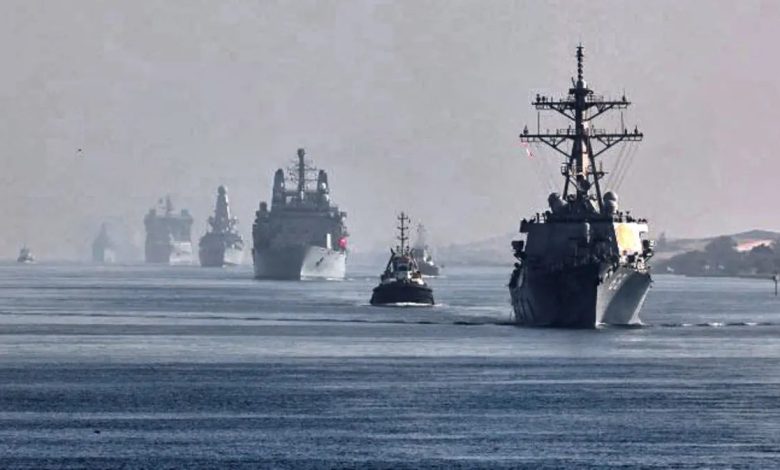Houthi Red Sea Attacks Impact Sudanese Trade

Report – Rehab Abdullah
The attacks launched by the Yemeni Houthi group have threatened dozens of ships that pass daily through the Red Sea as an international corridor through which trade reaches all parts of the world via the Suez Canal for more than two months, and have raised concerns among the major powers in view of the escalation of the Israeli war against the Palestinians in Gaza.
Perhaps this confirms that Sudan is not immune to the impact of these events, which call into question the extent of the impact of what is happening on the port of Port Sudan and Sudan’s trade.
The Red Sea and the Suez Canal are located on a major trade route through which about 12% of global shipping traffic passes, and the Suez Canal is the shortest sea route between Asia and Europe.
Logistics companies say that there will be an increase in the number of industrial companies in the next few weeks, after attacks on cargo ships in the Red Sea forced them to search for alternative routes.
Paralysis in Port Sudan
Workers at Port Sudan ports warned against complete paralysis in Port Sudan during the coming period, as a result of the tensions in the Bab Al-Mandab region, and the announcement by a number of shipping companies that they would stop working. They said that the tensions in Bab Al-Mandab will affect the sugar that is imported from India, in addition to fuel and materials. They explained that these tensions will lead to the restriction of commercial traffic at Port Sudan ports with Saudi and Egyptian ports.
Maritime transport specialists and economic experts also warned against what they described as an imminent “new shock” in trade activity around the world similar to the shock that this vital sector witnessed during the Corona epidemic, after major shipping companies decided to suspend their activity through the Red Sea due to Houthi attacks on commercial ships in in Bab Al-Mandab.
Sudan: the trip distance
In Sudan, the director of the Red Sea Navigation Company, Hatem Abdul-Rahman, announced the direct impact of the Houthi events on the Red Sea on Sudan’s trade, he told Sudan Events that the ships’ journey had become very long, so instead of arriving within 14 days, the journey now takes between 25 days to 26 days. He confirmed that this caused an increase in sea freight.
He revealed that all major companies no longer work directly to the Port of Port Sudan. They began unloading goods at the pivotal port of Jeddah and transporting the goods via tributary ships from Jeddah to Port Sudan.
High cost of trip
At a time when the former Director of the Sudanese Customs Authority, Lieutenant General (R) Salah Al-Sheikh, revealed that the cost of shipping goods to Sudan had increased by 20% due to the Houthi events on the Red Sea.
Salah Al-Sheikh stated added in statement to Sudan Events that the increase in sea freight affects all commodity prices, especially with the recent increase in the price of the customs dollar from 564 pounds to 650 pounds.
Navigation traffic in the Suez Canal decreased by 41%
Bloomberg Agency revealed that navigation traffic in the Suez Canal declined by 41% from its peak in 2023, amid escalating tensions in the southern Red Sea.
The Agency quoted a data platform managed by the International Monetary Fund and Oxford University as saying that there was a decrease in the average number of ships to 49 ships per day as of last Sunday, compared to the daily peak in 2023 of 83 transits.
The data also shows a similar rise in the number of ships passing through the Cape of Good Hope near the southern tip of Africa.
Osama Rabie, Chairman of the Suez Canal Authority, said that traffic in the canal decreased by 30% during the period from January 1 to January 15, 2024, in addition to a decline in cargo tonnage by 41%, and dollar revenues by 40%.



